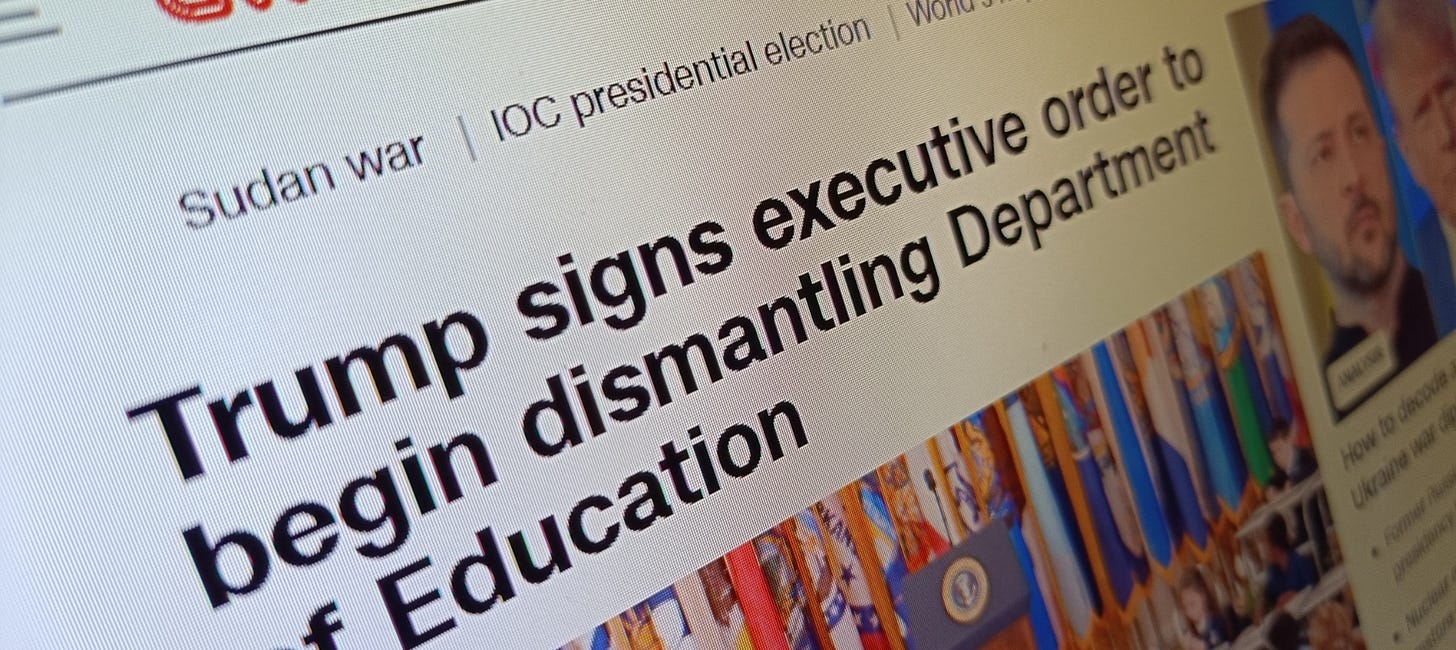Objective Journalism Isn’t Up To The Challenge Of Now
Traditional journalism’s focus on neutrality, balance and objectivity is its weakness — and it’s a weakness that reactionary and regressive groups are ready to exploit.
When I was briefly a full-time journalist, at The Spinoff, a large part of my “beat” was the world of dis- and misinformation that had become such a significant part of the global narrative during the height of the Covid pandemic.
One of the things that became somewhat accepted within the world of traditional journalism during this challenging time was that a hands-off objective reporting style wasn’t suitable when addressing false claims and counter-factual narratives. Instead, journalists started to insert context, facts and debunking directly into the stories they wrote.
Stories about vaccine rejection and disinformation would contain summaries of the medical and scientific consensus right in the body of the text, immediately before or after quotes from, and summaries of, those rejecting reality.
Even headlines were written in ways that ensured false claims being reported on weren’t presented without that important context. It was something that most news organisations accepted was necessary in order to report on current events without becoming party to the disinformation they were covering.
But as the pandemic (or at least our interest in thinking about it) has faded into the distance, so too has the willingness within traditional media to take a position on objective reality. Instead we’re back to a disconnected objective style that sees journalists seemingly floating above our reality, simply telling us what everyone is saying, but not what it means or what is true.
It’s a style that is not suitable for now — for a time in which disinformation has moved from an issue that springs forth from small online communities, to instead being a significant part of everyday mainstream political discourse.
Global news giants like the New York Times and CNN — confronted by a US Presidential administration that is determined to exercise imagined power in a way that has already far exceeded anything seen before in the country — are maintaining a polite distance in their reporting that simply sees them reporting events as if they are just the normal goings-on of a new administration.
Their “opinion” content may be willing to take a firmer stance, but it lives on its own, tucked away from the real news with bold banners proclaiming its subjectivity.
Instead what the now calls for is a return to the insertion of context and fact directly in-line with the reporting of events. Reporting on the invocation of an 18th century law to facilitate deportation should be more explicit that there is no basis for its use. While they will add some “legal experts suggest” and “critics say” here and there, the headlines and ledes simply parrot the disinformation-as-policy that Trump wants presented.
Simply acting as a neutral stenographer isn’t a defensible position in the current environment. We all understand that news is consumed in disordered ways now — headlines are often all that people bother to read, perhaps accompanied by whatever brief blurb is carried to their Facebook or X feed.
It isn’t a challenge unique to the US either. While other countries aren’t perhaps as deep in the sea of mainstream disinformation as the US, it’s certainly a growing trend globally. And it’s not new — arguably the UK’s disastrous decision to leave the EU was significantly swayed by mainstream disinformation that was largely unchallenged by objective news reporting at the time.
For the better part of the last couple of decades it has been generally accepted in media that bothsidesing the issue of climate change was not responsible or journalistically ethical. Although in the decades before that, where it was routine to platform a climate change denier in any story about the impact of climate change, it's likely the damage was already done.
The same is now true with… everything.
It is often repeated that someone’s prototypical journalism professor lectured them that their job wasn’t to report that “one person says it’s raining and another says it isn’t” it was to “look out the fucking window” — it’s really past time to start looking out the fucking window.
The media organisations that are, in my opinion, rising best to the occasion when it comes to Trump are those which are less traditionally news outlets. They have an editorial style that blends reporting with opinion in a way that makes them unafraid to make declarations about the reality of the world around them.
Unfortunately most media are now seemingly more afraid than ever to take a stand. With report after report showing declining trust in the media, organisations fear doing anything that gives anyone reason to question them. But in doing so they are creating the very distrust they are worried about as people look to journalists for meaning and context, and instead find reporting that feels more like competing press releases.
Ultimately the issues faced by journalists are many — the industry is under more pressure than ever, with revenues falling and individual journalists being asked to report more in less time — but the need for clear-eyed and decisive reporting is also greater than ever.
If there’s one thing I’ve learned from reporting on people who like to “do their own research” it’s that people are generally very bad at research. We are reliant on those who are good at it to do that research and let us know what they find.




This is goddamn depressing...how has the world become such a shitshow? But thanks for trying to comment on it and try to analyse the terrible situation we're in ;)
A lot of legacy media has been on a slow-burning enshittification, particularly since the Internet cannibalised its traditional revenue sources and the subsequent buyouts by billionaires with axes to grind.
Better Public Media's levy proposals, rather than the unpredictable moves to tax Big Tech, are the best of a bad lot.
https://betterpublicmedia.org.nz/our-aims/sustainable-funding